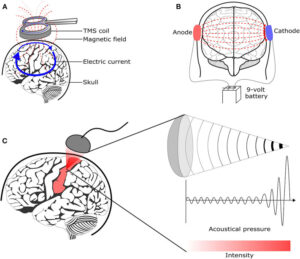If you are one of the millions of people who suffer from OCD intrusive thoughts, you know how debilitating they can be. The good news is that there are many treatments available that can help you manage your symptoms and lead a normal life. In this blog post, we will discuss the best treatment for OCD intrusive thoughts. We will also provide tips on how to find the right treatment for you.
Contents
About OCD Intrusive Thoughts
Obsessive-compulsive disorder (OCD) is an anxiety disorder that can cause persistent, intrusive thoughts that are unwanted and often disturbing. These intrusive thoughts involve the fear of harm or contamination, extreme doubts about one’s own behavior, or obsessive ideas about religion, sexual orientation, or personal safety. People with OCD may have difficulty controlling their behaviors in response to these thoughts. These conditions can lead to significant distress and disruption in their lives.
Are OCD Intrusive Thoughts Curable?
OCD intrusive thoughts cannot be cured, but they can be managed with the right treatment. Treatment typically involves cognitive-behavioral therapy (CBT). This is a form of psychotherapy that helps people identify and change their patterns of thinking and behavior in response to intrusive thoughts. Exposure and response prevention (ERP) is another type of therapy. It can be helpful for people to resist engaging in compulsive behaviors in response to their thoughts.
What Are The Best Treatments For OCD Intrusive Thoughts?

Here below are some of the best and most effective treatments for OCD intrusive thoughts:
Cognitive-behavioral therapy (CBT)
The best treatment for OCD intrusive thoughts is Cognitive-behavioral therapy (CBT) a type of psychotherapy. It focuses on identifying and changing patterns of thinking and behavior that contribute to OCD intrusive thoughts. CBT helps people learn new ways of responding to their thoughts without engaging in compulsive behaviors. Professionals prefer this form of treatment for OCD intrusive thoughts.
Exposure And Response Prevention (ERP)
Exposure and response prevention (ERP) is a type of cognitive-behavioral therapy that helps people resist engaging in compulsive behaviors in response to their thoughts. It involves gradually exposing people to situations they may find triggering while encouraging them to refrain from engaging in their normal compulsions when faced with these triggers. ERP is very effective in helping people manage OCD intrusive thoughts.
It includes the imaginal, or in-vivo method. In this people are exposed to their intrusive thoughts through vivid images and thinking. It can help them learn to confront the feared situation without engaging in compulsive behaviors. Response prevention is also here, as it helps people to prevent themselves from engaging in compulsive behaviors when they encounter intrusive thoughts.
Acceptance And Commitment Therapy (ACT)
Acceptance and commitment therapy (ACT) is a type of psychotherapy that encourages people to accept their thoughts and feelings. It also commits to making changes in their lives. It helps people recognize intrusive thoughts as being real, but not necessarily accurate or important. ACT teaches them ways to respond differently to these thoughts. It helps them to not engage in compulsive behaviors and activities.
Dialectical Behavior Therapy (DBT)
Dialectical behavior therapy (DBT) is a type of psychotherapy that focuses on helping people regulate their emotions and manage stress. It teaches people how to recognize and accept their intrusive thoughts. It also teaches them new strategies for managing their responses to these thoughts. DBT is effective in treating OCD intrusive thoughts.
OCD Support Group
Support groups are another important form of treatment that can help people with OCD intrusive thoughts. Support groups provide a safe place for people to share their experiences, exchange coping strategies, and provide encouragement to one another. Finding support from others who understand what you’re going through can be invaluable in helping people manage their OCD intrusive thoughts.
Medication

Medications such as selective serotonin reuptake inhibitors (SSRIs) can be effective in reducing the intensity of OCD intrusive thoughts. SSRIs work by blocking the absorption of serotonin, a neurotransmitter that is thought to be involved in anxiety and depression.
Such medications can reduce the symptoms of OCD, including intrusive thoughts. However, medications should always be used under close medical supervision. It is possible to have side effects such as nausea and fatigue.
Mindfulness Activity
Mindfulness activities such as meditation, yoga, and deep breathing techniques can help manage intrusive thoughts. This method encourages people to observe their thoughts without judgment or reaction. It helps them become aware of their thoughts without getting caught up in them. This can help reduce the intensity of OCD intrusive thoughts and make them easier to manage.
Transcranial Magnetic Stimulation (TMS)

Transcranial magnetic stimulation (TMS) is a relatively new treatment for OCD intrusive thoughts. It involves using a device to send pulses of electromagnetic energy through the brain in order to stimulate areas that are involved in obsessive-compulsive behavior.
TMS is effective in reducing the symptoms of OCD, including intrusive thoughts. However, it is still an experimental treatment and shall perform under professional surveillance.
Deep Brain Stimulation (DBS)
Deep brain stimulation (DBS) is a surgical procedure in which electrodes are implanted in specific areas of the brain. The electrodes send electrical impulses to these areas. It helps to reduce the symptoms of OCD, including intrusive thoughts. DBS is generally considered a last-resort treatment for OCD and should only be used under close medical supervision.
How To Treat OCD On Your Own?
Here are some of the things you can do on your own to help manage OCD intrusive thoughts:
- Challenge negative thinking patterns: People with OCD often have distorted or negative thought patterns that can lead to compulsive behaviors. Challenging these thoughts by questioning them and reframing them in a more positive light can help people break the cycle of obsessive-compulsive behavior.
- Practice relaxation techniques: Activities such as meditation, yoga, deep breathing, and progressive muscle relaxation can be helpful in reducing anxiety and calming the mind.
- Develop a healthy lifestyle: Eating healthy, exercising regularly, and getting plenty of sleep can help reduce stress and anxiety levels, which in turn can help manage intrusive thoughts.
- Connect with others: Reaching out to friends, family members or mental health professionals can be a great way to manage intrusive thoughts and find support. Talking about your struggles can help you feel less alone, and can provide insight into different ways to cope with OCD.
Conclusion
OCD intrusive thoughts can be very distressing and difficult to manage. However, there are several treatments available that can help people cope with these thoughts more effectively. These include psychotherapy, support groups, medications, mindfulness activities, TMS, and DBS. It is up to the patient’s condition to choose the best treatment.
With the right combination of treatment options, people with OCD can find relief from their intrusive thoughts.
Take care, and don’t forget that you are not alone! OCD is a mental health disorder characterized by obsessions and compulsions. If you have any queries regarding OCD treatment, ERP therapy experienced therapists at OCDMantra can help: Book a trial OCD therapy session


